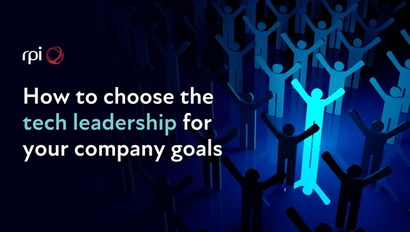Connectivity is accelerating.
- By 2027, the average mobile device in North America and Western Europe will use over 50 GB of data per month
- There will be roughly73.1 zettabytes (73.1 trillion gigabytes) of data generated by IoT devices by 2025
- 5G offers 20x the speed of 4G. 6G is likely to be 100x faster than that.
More people are more connected to more devices, which are all more connected to each other. Not only does that affect the volume of consumer data, but also your customers’ relationship with it — ever-present data tracking, monitoring, and understanding of what consumers are doing raises several commercial, practical, and ethical questions that telcos need to answer, and need to answer urgently.
5G to 6G
As4G did to 3G, 5G blows 4G out of the water for speed and performance. 6Gspeeds will be greater than many could possibly need or even comprehend. In user terms, 6G should be able to download 142 hours of the highest definition video in one second.
Internet access
The internet will soon (if it hasn’t already) stop being something that we ‘access’ in the sense of joining or leaving it, connecting and disconnecting as it suits. It is (or will be) something that’s always with us through at least one device.
Just as mobile phones and VoIP have all but killed off landline telephones, mobile connectivity will likely end home broadband as we know it, at least as a separate connection from mobile data.
If telcos are going to shepherd consumers away from home broadband, then their replacement needs to be as reliable, if not more so, and coverage needs to be just as dependable anywhere in the country, however remote. That’s perfectly achievable, but it’ll take tremendous investment and strategy.
IoT
The number of IoT devices is set to reach 33 billion by 2032. With the global population projected to be 8,687,227,850 by then, that’s 3.8 IoT devices for every person on Earth.
5G and eventually 6G will be central to the viability of that. If most people are carrying or wearing something connected, vehicles are constantly communicating and driving themselves, and infrastructure is measuring and reporting its own status and performance, the demand for processing power will be phenomenal.
In turn, that means that security, privacy, and energy consumption become extremely urgent and complicated questions.
AI
Increased use of AI will be a basic practical necessity in a world of 5G, 6G, and IoT. Not only will there be vast amounts of data to process, but the scaling and growth of these networks will only be possible through things like machine learning.
- AI can summarise one device’s data before transferring it, which means connecting to large numbers of devices doesn’t overwhelm the network
- Data analysis improves services more quickly and more meaningfully
- Machine learning can provide desirable outcomes more efficiently by predicting operation conditions
Privacy
- According to a report by Merkle, half of people feel that brands know too much about them
- McKinsey found that 44% don’t fully trust digital services
As more and more of the population comes from digitally native generations, scepticism and wariness may be on the wane, but it’s still the case that a lot of consumers are uncomfortable with the extent and type of data that businesses hold. If anyone is apprehensive now, things are only going to get worse for them.
Supposing they’re one of the billions with at least one IoT device, they will probably have opted-in to scores of data-sharing arrangements without fully appreciating what they’ve agreed to, and they’re being tracked and measured in several ways all of the time.
Telcos should be aware that though they’re using data in ways that are totally legal and completely ethical, they can still damage the consumer relationship if they become intrusive.
Security
Telcos have always been an appealing target for cyber criminals, because of the extent and range of data that they hold and process. If telcos are supporting 5G, and IoT infrastructure, the surface area for attack multiplies hugely, and tech innovations mean there’s a race to discover new vulnerabilities and (depending on who finds them) protect or exploit them.
Given the intimacy of some IoT data, and the continued privacy concerns of consumers, security breaches can mean not only the commercial impact of a poor reputation, but also the threat of swift legal action.
There are a lot of unknowns in the 5G future, and preparing for them will take extraordinary levels of expertise and experience in telco operations, and, of course, security.
Preparing for the future of connectivity
In the future, near and far, telcos will need expertise in a very wide range of fields — customer relations, data, security, AI and IoT. Considering the breadth of the experience required, and the number of businesses who’ll be seeking it, true industry experts and leaders will be difficult to secure.
RPI draws on its deep telco heritage and an unrivalled candidate pool to place the most sought-after talent in the businesses that need them. Start the search for your next suite of innovators and leaders by emailing people@rpint.com



